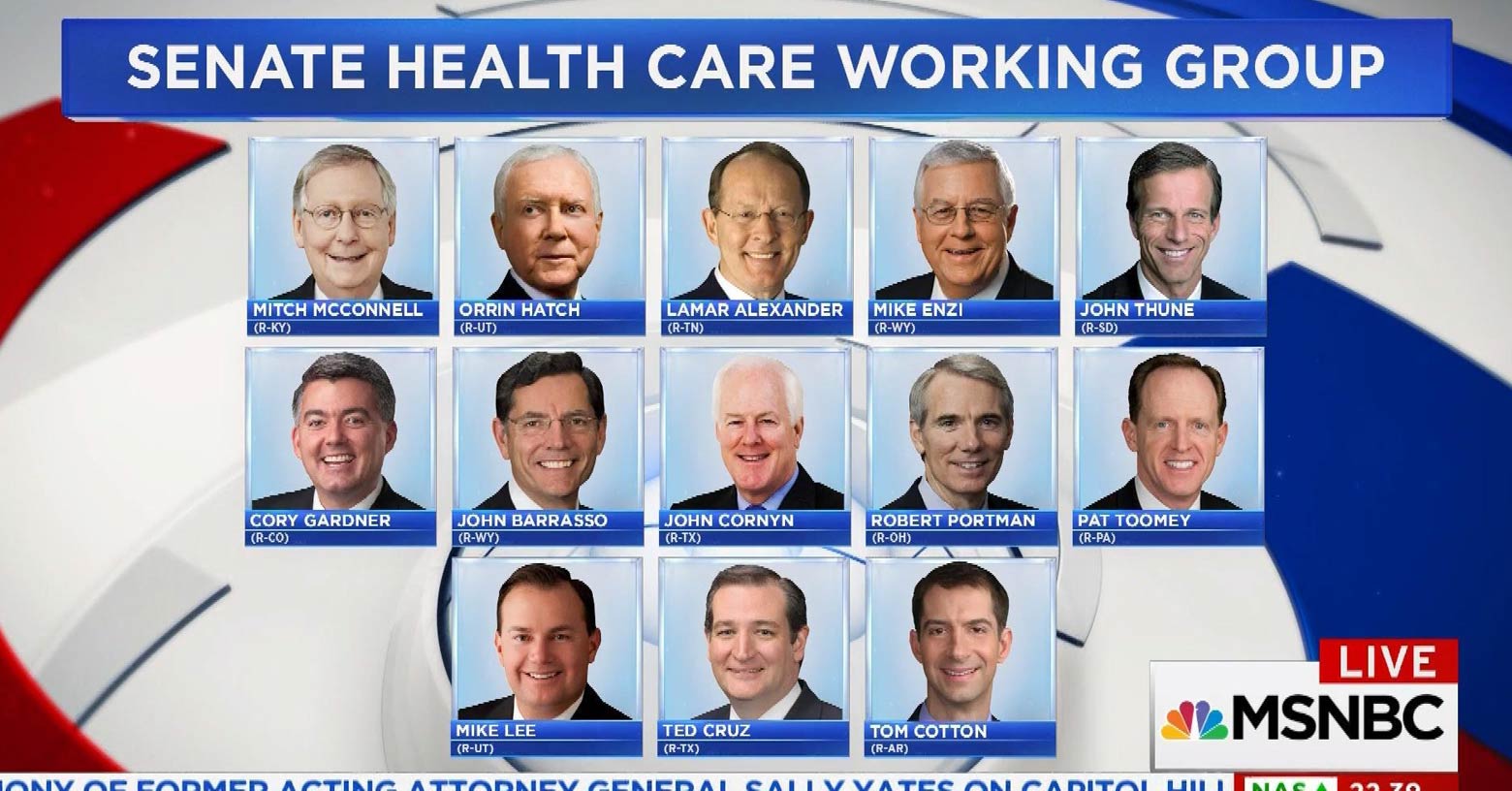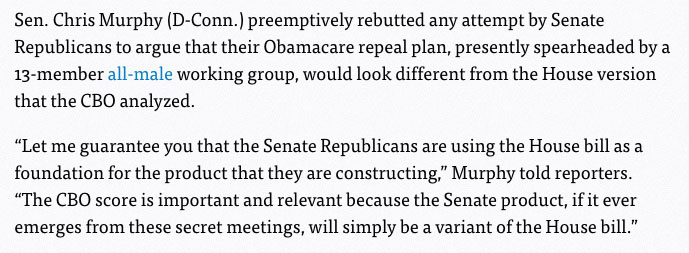
(UPDATED June 9, 2017) It may or may not make sense to keep talking about the American Health Care Act. After the GOP-controlled House of Representatives passed the legislation on May 4, immediate response to the legislation strongly suggested that the Senate would build its own repeal-and-replace legislation from scratch.
This is actually encouraging, since there's certainly been abundant criticism of the AHCA to suggest that it should be scrapped – if not completely overhauled.
Bad news and more bad news about the AHCA
The latest – and most powerful – indictment of the legislation: an analysis of its long-term effects on costs and coverage by the Congressional Budget Office this week. Among the CBO's conclusions about the House bill (if it were signed into law in its current form):
- The AHCA would result in 23 million more uninsured Americans over 10 years.
- Those uninsured would include millions with pre-existing conditions.
- Less healthy Americans would face higher health premiums
- and so would older, poorer Americans.
- That legislation could destroy insurance markets.
See a full list of AHCA provisions and amendments.
More reasons why opponents revile the AHCA.
Would your state become an AHCA 'danger zone?' Oops. Nevermind. Apparently ALL states will be one gigantic 'AHCA danger zone.'
Will the CBO assessment and other criticisms give Senators pause – and cause them to take a less destructive approach to repeal? Early GOP responses aren't encouraging.
What's happens now?
- Let's start with what won't happen. Notably, the AHCA will not be sent back to the House for reworking and another vote as predicted by some policy analysts.
- The Senate is already hard at work on its version of legislation, with Budget Committee Chairman Mike Enzi noting that he has started writing the legislation with Sen. Lamar Alexander (Tennessee) and Sen. Finance Chairman Orrin Hatch (Utah).
- The Senate could come up with something completely different – or not. Though Republicans have strongly suggested that they'd be starting from scratch on legislation, Senate Democrats are calling B.S. and some health journalists are reporting that the Senate legislation would like include some of the House bill's most controversial components.

- The Senate bill goes under the microscope. Whatever the Senate produces will require a separate assessment by the Congressional Budget office – and if the House doesn't accept that version, the House and Senate would need to reconcile differences in a conference committee.
- Senate would then try to pass a bill using reconciliation, which would allow passage with the votes of just 50 Senators, though Senate Majority Leader Mitch McConnell has commented that the path to 50 votes is unclear.
- When could we actually see Senate legislation? Sen. Ron Johnson, a member of the Senate working group, said that its leadership would be begin drafting the Senate legislation during the Memorial Day recess. Other Republicans leaders have indicated they want to vote on Senate legislation before they recess again in August.
- A list of reasons the Senate can't repeal the ACA just yet.
Who's working on the Senate bill?
- Soon after passage of the House bill, Senators broke into working groups. Among the most powerful: 20 Senators who represent more than 4 million Americans who gained coverage from the ACA's Medicaid expansion.
- The lead working group was originally comprised of 13 Senators: Lamar Alexander (Tennessee), Mike Lee (Utah), Tom Cotton (Arkansas), Cory Gardner (Colorado), Pat Toomey (Pennsylvania), Mike Enzi (Wyoming), Orrin Hatch (Utah), Mitch McConnell (Kentucky), John Cornyn (Texas), John Thune (South Dakota), Robert Portman (Ohio), Ted Cruz (Texas) and John Barrasso (Wyoming). Membership in the group was opened up after it received heavy criticism that its only members were male. Shelley Moore Capito (West Virginia) was invited to participate on May 9, but it was uncertain whether she would be a permanent member.
- Another overview of Senate working groups.
- Contact Senators – including by phone, Facebook and Twitter.
Let members of Congress know how you feel
As Ben Wikler points out, it's now time for "all hands on deck.' Read the full thread.
https://twitter.com/benwikler/status/872911051628707841
What else can you do?
- Find a town hall near you.
- Register for updates about groups meeting to oppose
- Learn how to be more effective at a town hall.
- Learn how repeal would affect YOUR Congressional district.
- Review your Senator's voting record on health reform.
- Arm yourself with evidence, including explainers and infographics.
- Call your Senator and ask these 11 questions about his or her views on replacement legislation.
- Show up ... and speak your mind ... like this guy:
Try to keep up
It's critical to stay focused on the repeal battle and maintain the energy that has put members of Congress on notice in recent months.
10 Tweeters with their finger on the pulse
- Sarah Kliff
- Louise Norris
- Dan Diamond
- Charles Gaba
- Kimberly Leonard
- Dylan Scott
- Andy Slavitt
- Topher Spiro
- Bob Herman
- David Nather
10 online sources of up-to-the-minute news
- KHN Morning Briefing
- Vox
- Politico Pulse
- ACASignups.net
- Community Catalyst Health Policy Hub
- Axios
- Morning Consult
- Wonkblog
- ThinkProgress Health
- NPR Shots
Wait. Is there more?
Let me know if I'm missing a helpful resource. Drop me a note.
Steve Anderson is editor and content manager for healthinsurance.org, where he's been writing about health insurance and health reform since 2008. He's been fortunate to have worked with a talented team of health policy writers.
